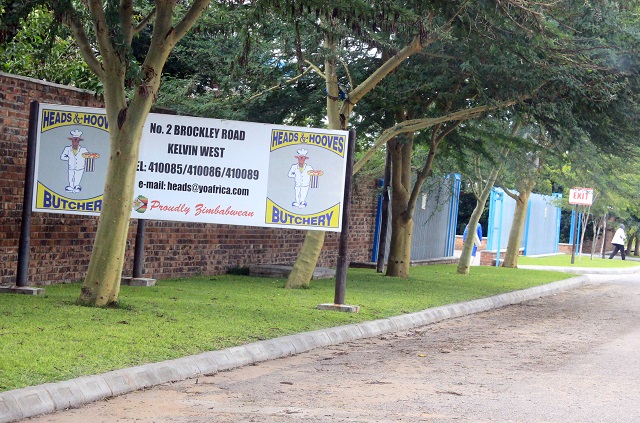Church burial sparks outcry

Patrick Chitumba, Midlands Bureau Chief
There was a fear of ghosts in the ancient world and a loathing of close proximity with the dead to the extent that the Roman law prohibited either burial or cremation within the city.
In succeeding years and with the development of Christianity, the wish to separate the living and the dead weakened as cremation made way for burial as a means of disposing of the dead.
Churches began to be associated with a royal burial or with the burial of a saint on the site.
Research shows that bishops and martyrs began to be buried in churches, despite earlier disapproval.
The tradition of burying the occasional Holy person or the Royal Martyr became so entrenched that rich and powerful people started to be buried inside the Church.
In fact, anyone with money wanted to be buried inside the Church and the rate of burials rose in the post-reformation period.
Bodies were buried in either a cloister or chancel in the Church and the numbers of burials on Church sites increased. Rather than an occasional burial for a specific occasion, noble families actively developed their traditional vaults under the Church and this became a practice hallowed by tradition.
In Zimbabwe, the nation is still grappling with news that popular philanthropist and retired Anglican cleric, Reverend Honorary Canon Lazarus Tashaya Muyambi, buried his wife, Irene Neddie Mashinya, inside a church on November 26 last year.
The decision by Rev Muyambi, who owns Chita Chezvipo Zvemoto (CZM) Primary School, St Agnes Children’s Home, Christian Healing Mission and Logos Girls High (boarding school) at Gokwe Centre, to bury his wife in a church, continues to baffle many communities.
The incident triggered a social media debate, where pictures of the burial, with a coffin inscribed “Mum”, were being circulated.
In the circulating pictures, Mrs Muyambi’s coffin was placed near a grave dug inside the church before its subsequent burial.
To this day, some mourners who attended the burial are still expressing their displeasure at the practice, which they described as foreign and feared would bring bad omen to the community, which is under Chief Njelele.
What, however, these people don’t know is that Rev Muyambi wants to be buried next to his wife in the church.
The Chief wants Mrs Muyambi’s body to be exhumed and buried at a “proper” burial place but his powers are superseded by those of the Gokwe Town Council.
Rev Muyambi showed the Chronicle news crew a space between the pulpit and his wife’s grave, which he said had been reserved for his grave.
Chief Njelele said it was taboo for an indvidual to be buried in a church hence he was engaging the council to have the body exhumed.
“It’s a pity that the area is under Gokwe Town Council and as such I cannot order the exhumation of the body. My position, however, is that we can’t have people burying their loved ones in churches.
“Next it will be in houses and can we have graves in every house or church? It’s a big no. I want this body exhumed and buried properly,” said Chief Njelele.
He said the practice is not common in the country and should not be tolerated despite Rev Muyambi’s insistence that it is popular in other countries.
Gokwe Town secretary Ms Melania Mandeya said while the property was in the council area, the local authority had no powers to stop the burial in the church since it was on private property. “We don’t have laws that prohibit such practice,” she said.
Ms Mandeya said councillors and an estimated 1 200 mourners attended the burial and not a single person raised an objection to the decision to bury Rev Muyambi’s wife in the Church.
Gokwe town residents, however, said Church buildings were places of worship and not burials.
“Even Jesus Christ was not buried in the church; this will bring bad omen to Gokwe. The Chief or town council should make sure that the body is buried in its rightful place which is the cemetery” said one resident who spoke on condition of anonymity.
Rev Muyambi said he did not bury Neddie (Mrs Muyambi) in the Anglican Church building but in his private Chapel which is called The Trinity Zimbabwe Healing Chapel.
The Anglican Church is located about 300 metres from the Chapel although the two buildings are housed in one yard known as the Village of Reverend Honorary Canon Lazarus Tashaya Muyambi.
Rev Muyambi said the two buildings were separate entities although they were both built under his watch.
As a result of his wife’s support and vision, Rev Muyambi said more than 800 orphans have passed through the children’s home while more than 150 witches repented before giving their lives to Jesus Christ.
He said Gokwe North and South now boast of 20 Anglican churches, which he started with his wife, Neddie.
“Neddie was buried in our private Chapel which we use for prayers. We use it to help the sick and the needy in prayer. In that same Chapel is space left for me and I will be buried beside my dear wife,” said Rev Muyambi.
He said they had managed to set up their Village because of his wife who he married aged 19 years when he was 27 before they settled in the Gokwe area in 1972.
“This Chapel, Anglican Church, girls boarding school, healing centre, the orphanage and clinic are all as a result of Neddie’s hard work. I couldn’t have done it alone so burying her in our Chapel was my way of honouring her. I’m not the first and won’t be the last to bury someone in a church. There’re people buried in the Roman Catholic and Anglican cathedrals in Harare. Samuel Mutendi the founder of Zion Christian Church is buried at Defe Dopota.
In Botswana where I once ministered, I buried some people in houses. So all I’m saying is this is not unique to me. I’m not apologetic about what I did. I stand tall knowing that I’ve honoured my wife, my friend who stood by me when all this was a forest shunned by people until it developed to what it is today,” said Rev Muyambi.
Mr Izwi Muyambi, the deceased’s son, said he did not understand the public outcry following the burial of his mother in the church as it was a norm in Anglican and Roman Catholic churches.
“There is nothing wrong with burying someone in the church as it is the norm in the Anglican and Roman Catholic churches,” said Mr Muyambi.
@pchitumba1











Comments